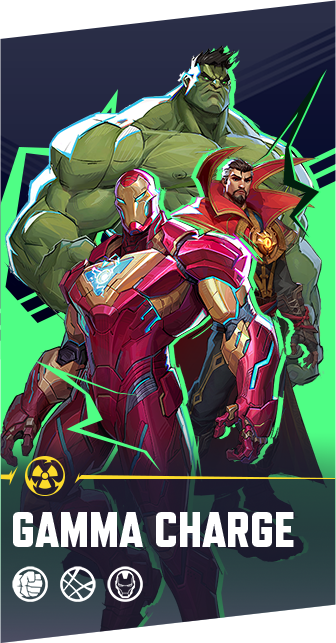Unveiled: Is There SBMM in Marvel Rivals? Discover the Truth Behind Matchmaking! In the world of multiplayer gaming, matchmaking systems play a crucial role in ensuring fair and enjoyable gameplay experiences. For fans of Marvel Rivals, the question of whether skill-based matchmaking (SBMM) exists has been a topic of heated debate within the community. This article delves into the intricacies of Marvel Rivals' matchmaking system, exploring its mechanics, player concerns, and developer insights.
As players dive into the competitive landscape of Marvel Rivals, understanding how matchmaking works can significantly impact their overall experience. Whether you're a seasoned veteran or a newcomer to the game, knowing the ins and outs of the system can help you navigate the challenges of solo queue and team play. Let's uncover the truth behind SBMM in Marvel Rivals and what it means for players striving for success in this dynamic universe.
Understanding Skill-Based Matchmaking in Marvel Rivals
According to NetEase, Marvel Rivals employs skill-based matchmaking (SBMM) to create balanced games. This system evaluates various stats to ensure that players are matched with opponents of similar skill levels. By analyzing factors such as win rates, kill/death ratios, and performance history, the game aims to provide a fair playing field for all participants. However, the effectiveness of this system remains a subject of discussion among players.
For those seeking to improve their experience in solo queue, understanding SBMM is essential. Players who consistently perform well may find themselves facing tougher opponents as the system adjusts to their skill level. On the other hand, those struggling to adapt may encounter more manageable matchups as the system recalibrates. This dynamic ensures that every player has an opportunity to grow and refine their abilities over time.
Despite these efforts, some players argue that the current implementation of SBMM could be improved. They suggest that the system occasionally mismatches players, leading to uneven games where one team dominates due to a significant skill gap. Addressing these concerns requires ongoing feedback from the community and continuous updates from developers to enhance the matchmaking process.
Evaluating Competitive Points and Match Outcomes
The relationship between competitive points and match outcomes plays a critical role in assessing the effectiveness of SBMM in Marvel Rivals. While the system strives to balance teams based on skill, inconsistencies in point distribution have raised questions about its fairness. Until players start losing the same amount of competitive points for a loss as they gain for a win, doubts about SBMM's accuracy will persist.
Many players recount experiences where victories feel hollow due to mismatches against weaker opponents, while defeats seem unjustified when facing superior adversaries. These scenarios highlight the importance of refining the SBMM algorithm to better reflect player capabilities. By aligning point gains and losses with actual match difficulty, the system can foster a more rewarding competitive environment.
Inspiring stories of triumph against all odds, such as Spider-Man players overcoming seemingly insurmountable challenges, underscore the potential for growth within the current framework. As players continue to share their experiences, the community gains valuable insights into areas requiring improvement, paving the way for future enhancements to the matchmaking system.
Role Queue Demands and Team Dynamics
As healers like Rocket Raccoon enthusiasts emphasize, Marvel Rivals cries out for a role queue system to complement SBMM. The absence of designated roles often leads to imbalanced team compositions, where certain strategies dominate at the expense of diversity. Introducing an Overwatch-style role queue would empower players to select specific roles, fostering greater teamwork and strategic depth.
Strategists and support-oriented players express frustration over being forced into suboptimal positions due to the lack of role selection options. This limitation not only hampers individual satisfaction but also impacts overall team synergy. By implementing a role queue, Marvel Rivals can cater to diverse playstyles, ensuring that every participant contributes meaningfully to their team's success.
Community discussions around role queues reflect broader aspirations for enhanced gameplay mechanics. Players advocate for a system that respects individual preferences while maintaining competitive integrity. Such innovations would further enrich the Marvel Rivals experience, encouraging collaboration and creativity among teammates across various roles.
Quick Play Matchmaking Insights
Contrary to misconceptions, quick play matches in Marvel Rivals already incorporate SBMM principles. High-level players, such as those at GM rank, confirm that without SBMM, they could easily dominate casual games with overwhelming ease. This observation underscores the system's presence even in less formal settings, reinforcing its integral role in maintaining balance throughout the game.
Players at varying skill levels benefit from SBMM in quick play by encountering appropriately matched opponents. While occasional mismatches may occur, the overall structure ensures that most matches remain competitive and engaging. Recognizing this aspect helps demystify common assumptions about quick play being entirely random or unstructured.
Feedback from experienced players like u/SmashMouthBreadThrow highlights the significance of SBMM in preserving the integrity of both casual and ranked modes. Their insights contribute to shaping future improvements, ensuring that all players, regardless of their preferred playstyle, enjoy well-balanced and satisfying matches.
Addressing Criticisms of SBMM in Marvel Rivals
Some critics argue that Marvel Rivals features one of the worst SBMM systems ever implemented in gaming history. Accounts of extreme mismatches, where players either effortlessly dominate or face overwhelming defeat, fuel skepticism about the system's reliability. These anecdotes paint a vivid picture of frustration, illustrating the need for comprehensive reforms.
Despite claims of 50% win ratios, many players report wildly fluctuating experiences, swinging between effortless victories and crushing defeats. Such unpredictability detracts from the enjoyment of competitive play, prompting calls for transparency regarding SBMM algorithms. Developers must address these concerns to restore confidence in the system's ability to deliver consistent and fair matchups.
TheRideMajestic's assertion that SBMM has no place in Marvel Rivals, reserving such mechanics exclusively for competitive mode, sparks further debate. While valid arguments exist on both sides, finding a middle ground that satisfies diverse player expectations remains paramount. Continued dialogue between developers and the community will be key to resolving these issues and enhancing the overall Marvel Rivals experience.

